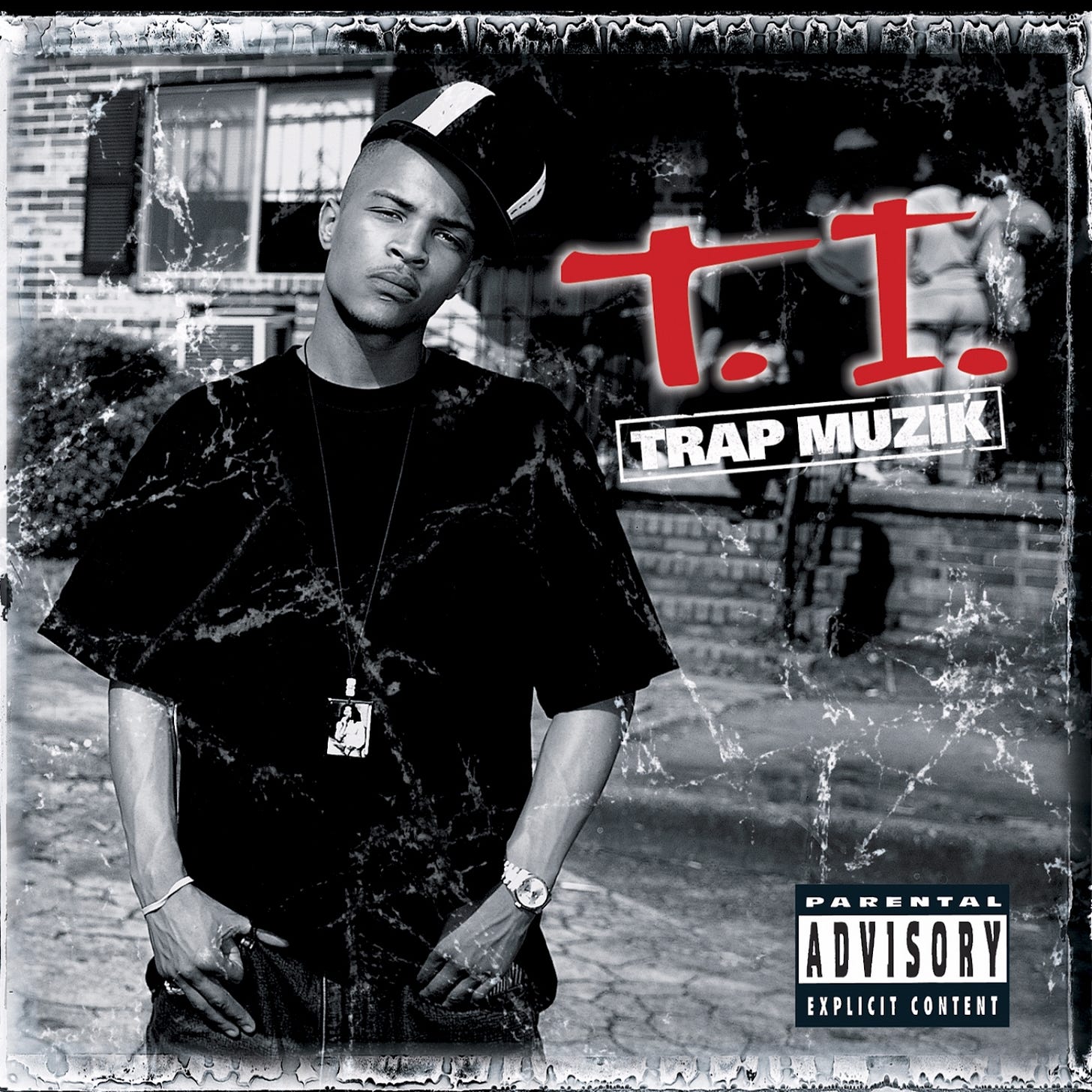T.I.'s 'Trap Muzik': The Birth of a Sub-Genre
Explore T.I.'s 'Trap Muzik,' an album claiming trap music's birth, reflecting the spirit and tenor of Atlanta's Bankhead.
T.I. cemented his status as the self-proclaimed “King of the South” when he released his sophomore album, Trap Muzik. This raw, gritty portrayal of life in Atlanta's underground trap culture marked a major milestone in T.I.’s career and exemplified his unmatched authenticity in hip-hop. With its distinctly Southern sound and no-holds-barred lyrics, Trap Muzik pioneered a new subgenre focused on the sights, sounds, and stories of the urban drug trade. T.I. offered an unfiltered glimpse into experiences in marginalized communities often overlooked in mainstream society.
His rapper skill, natural charisma, and swagger made him an ideal vessel to deliver trap music to a wider audience. By popularizing the trap genre, T.I. brought greater mainstream visibility to a complex culture. Trap Muzik gave depth, and humanity to people, places, and lifestyles frequently vilified and simplified in media. With its raw authenticity and TI’s masterful delivery, this album resonated widely and cemented his influence on hip-hop culture. Trap Muzik marked a significant artistic achievement in T.I.’s career and a cultural milestone for hip-hop.
The term “trap” refers to places where drugs are sold and distributed, and T.I.’s album Trap Muzik pioneered a new subgenre of hip-hop focused on the sights and sounds of this gritty, urban underground culture. The production featured distinctly Southern hip-hop beats that fused eerie synth lines, rattling hi-hats, and booming 808 basslines with T.I.’s honest, candid lyrics about dealing drugs and navigating street life. The music gave an unfiltered glimpse into the danger and devastation of living in the trap while revealing it as a complex community and way of life.
T.I. offered an authenticity rarely seen in mainstream hip-hop's portrayal of drug culture, rapping with detail and nuance about the paranoia, threats, and risks of slinging dope on the corner. His quick, syncopated flow paired effortlessly with production from acclaimed Southern hip-hop producers like DJ Toomp, who does not get the respect he deserves. His sonic work set a standard that influenced the sound of Southern hip-hop. His use of drum patterns and 808s brought a distinct flavor that was not just innovative for the time but became a foundation that future producers would build.
The songs embodied the tension between desperation and morality inherent to the trap lifestyle. Trap Muzik gave a platform and sheer listenability to people, places, and stories largely overlooked within hip-hop and marginalized by society. His natural southern drawl and swagger come through in his voice, complementing the regional flair of the production. T.I. glides over beats with an authoritative rhythmic pocket, exemplified on tracks like “24’s,” which features rapid-fire rhyme schemes and vocal cadences. His delivery embodies the aggression and abrasiveness inherent to trap music yet maintains a catchy musicality through compelling hooks.
His chameleonic vocal range shifts seamlessly between quick triplet flow and impactful one-liners punchlines. His voice commands attention, with an instantly recognizable timbre that etched his influence into the fabric of hip-hop. The chemistry between T.I.’s performances and beats from acclaimed Atlanta producers is palpable, the hard-hitting production energizing his lively flows. From impeccable multisyllabic rhyme patterns to tongue-twisting alliteration, T.I.’s wordplay and vocal control display his gift for rapping. As a body of work, Trap Muzik exemplified his versatile artistry and cemented his position as a preeminent Southern rapper.
His mastery of ambivalence emerges as a formidable strength. This attribute is finely woven into his music, deftly establishing moods and subtly subverting them within individual songs and sequences. Take, for instance, the sequence from “Be Easy” with its disarming calm, a quest for tranquility, followed by the blazing intensity of “No More Talk,” inviting conflict to the forefront. In the compelling narrative of “Doin’ My Job,” T.I. boldly flaunts his array of narcotics, only to pivot and passionately defend the work ethic of drug dealers, drawing attention to their shared human experiences:
“We got lives, we wanna live nice too/We got moms, dads, wives, kids, just like you.”
His collaborators evolved in tandem with his growth. Progressing from their somewhat understated contributions to the earlier In Da Streets mixtapes featured on Trap Muzik, producers San “Chez” Holmes and Toomp imbued their productions with a distinct and rugged style. Chez’s compositions leaned into a rhythmic swing rather than a traditional bounce. While arranging his percussion more customary than Toomp, Chez’s hi-hats and snares maintained a metronome-like precision. At the same time, his bass riffs and interjections of organ and guitar generated a carefree, swaying sensation. T.I. found room for introspection within Chez’s tracks, and the unhurried, gently winding production played a pivotal role. A track like “King of Da South” might outwardly seem an extended proclamation of his finesse, yet T.I.’s ego palpably expands as his myth solidifies into his guiding principle. With fervor, he raps:
“I’m the king 'cause I said it, and I mean that s**t!”
The roster of producers, including David Banner, Jazze Pha, Kanye West, and Nick Fury, complement his versatility, each contributing a distinct style that harmonizes with his overarching trap vision. However, T.I. remained the core of the sound and the conceptual framework. He wasn’t the initial Southern rapper to discover his voice and audience within the dynamic interplay of the streets and clubs. Instead, his innovation lay in his insistence that the perils and triumphs intrinsic to those environments were inextricable. His 24-inch rims and rubber-band banks served as badges of honor and scars of experience. He was intertwined with Bankhead, and despite its challenges, it both fractured and forged him, ultimately granting him liberation.


